COVID updates: Scott Morrison announces reduction in flights from high-risk countries
Flights from countries where COVID is raging out of control will be reduced and Pfizer restricted to under 50s under new plans announced by the PM.
News
Don't miss out on the headlines from News. Followed categories will be added to My News.
Scott Morrison has announced “recalibrated arrangements” for the COVID vaccination program and cuts to flights from high-risk countries.
Pfizer will be prioritised for those aged under 50 and those in the 1A and 1B groups, the prime minister revealed following a meeting with National Cabinet.
“They will also be prioritised to those in residential aged care facilities and disability care in remote and very remote locations. And for quarantine and those essential frontline workers who are working in those areas which are vaccinated by the states and territories,” the prime minister said.
National Cabinet also agreed to bring forward AstraZeneca for over 50s, outside of 1A and 1B, for the GP respiratory clinics and state and territories from May 3.
Other changes include reducing by 30 per cent the numbers coming through chartered services from high-risk countries like India.
Mr Morrison said Australia will also will be reducing direct flights from India by 30 per cent.
Departures to India will also be limited, with some exemptions.
He said the government will also put in place an arrangement where if you have been in a high-risk country for the past 14 days, before getting on your last point of embarkation to Australia, then you would need to have had a PCR test 72 hours before leaving.
“What this will do is ensure in those places that other Australian residents and citizens will be able to return that won’t be coming from higher risk countries,” he said.
Just under 1.8 millions Australians have now been vaccinated including the prime minister’s mum.
“She was vaccinated today. She went down to her GP on the regular Thursday clinic and she has had her vaccination today,” Mr Morrison said.
State and territory leaders met with Mr Morrison for the second time this week.
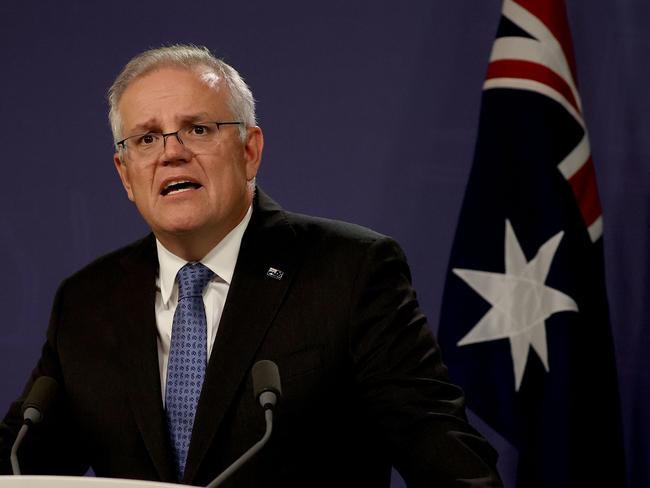
PFIZER RESPONDS TO BRISBANE BLOOD CLOT CASE
Pfizer has responded after a Brisbane man was hospitalised with blood clots just days after receiving the pharmaceutical giant’s COVID vaccine.
The 40-year-old, who works as a police officer in a quarantine hotel, presented at a private hospital on Wednesday suffering clots, after being jabbed on Sunday.
It was later revealed the man had also recently undergone knee surgery, which is believed to be the more likely cause of the blood clots.
In a statement, Pfizer said they had conducted a “comprehensive assessment of ongoing aggregate safety data” for the Pfizer-BioNTech vaccine, of which 200 million doses have been administered across the globe.
“(This has) provided no evidence to conclude that arterial or venous thromboembolic events (blood clots), with or without thrombocytopenia, are a risk associated with the use of our COVID-19 vaccine,” the company said.
“This safety database analysis included a review of all adverse events received for the vaccine through to March 27,2021.
“Pfizer considers that the benefit-risk profile of (the vaccine) in preventing COVID-19 remains positive.”
The Therapeutic Goods Administration and Queensland Health are investigating the case.
To date, Australia has recorded three cases of blood clotting linked to the AstraZeneca vaccine, which led the Australian Technical Advisory Group on Immunisation to change its guidance for people under 50, with a preference for Pfizer.
SOUTH AFRICAN VARIANT IN SYDNEY
Health authorities are scrambling to trace the possible transmission of the South African strain of COVID-19 after three returned travellers who stayed at a Sydney hotel became infected.
Genomic testing shows they each share the same viral sequence for the B1.351 variant.
The travellers entered Australia on April 3 on the same flight and stayed in adjacent rooms at the Mercure Hotel on George Street in Sydney’s CBD.
“All three people, two of whom are members of the same family, tested negative on their day two swabs in hotel quarantine, before subsequently testing positive for COVID-19 later during their quarantine periods,” NSW Health said in a statement on Wednesday.
“The two family members stayed in connecting rooms on the 10th floor of the hotel, while the third person was in an adjacent room.
“The family members tested positive on days seven and 10 of their stay, while the person in an adjacent room tested positive on day 12.”
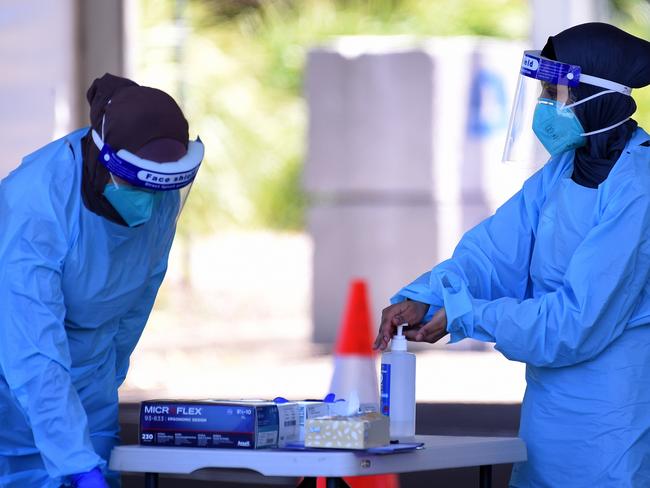
All three have been transferred to the special health accommodation, where they will remain until they are no longer infectious.
NSW Health is urgently contacting people who stayed on the same floor between April 7 and 12.
They are directed to get tested and self-isolate for 14 days from the day they left quarantine.
Hotel staff who worked on the 10th floor at the Mercure are also being tested and self-isolating.
It comes just days after three family members became infected from a family of four staying in an adjacent room at the Adina Apartment Hotel Town Hall.
The families were also diagnosed with the same viral sequence, and health authorities said the family of four had been infectious between April 8 and 11.
MELBOURNE SUBURBS ON HIGH ALERT
COVID-19 has been detected in the wastewater of more than two dozen Melbourne suburbs, despite the state recording no locally acquired cases in almost two months.
Victoria’s health department sent out an updated alert on Tuesday night which outlined 31 new suburbs of concern in Melbourne’s north and east.
Residents in Melbourne’s northern and eastern suburbs have been urged to get tested if they have any symptoms of the illness.
Victoria’s chief health officer Brett Sutton today said the wastewater samples could be due to a positive case being in the early active infectious phase or because someone is continuing to shed the virus after the early infectious period.
“While it is possible that these detections are due to a visitor or visitors to these areas who are not infectious, a cautious approach is being taken,” Professor Sutton said.
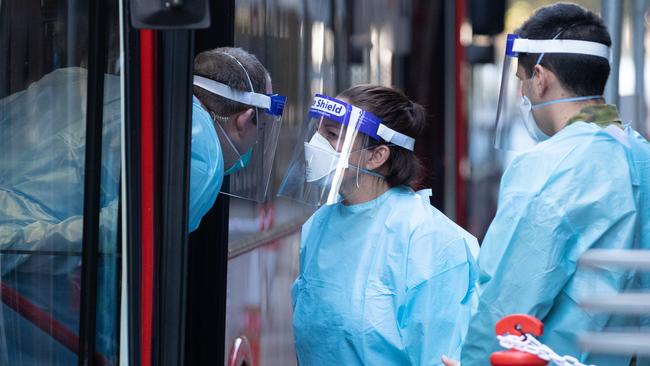
“People who live in or have visited (those) areas should monitor for COVID-19 symptoms and get tested if any develop.”
The new suburbs in Melbourne’s north include Ascot Vale, Brunswick, Brunswick West, Coburg, Essendon, Essendon Fields, Flemington, Kensington, Moonee Ponds, North Melbourne, Parkville, Pascoe Vale, Pascoe Vale South, Strathmore and Travancore.
In the east, residents or those who visited Bayswater, Bayswater North, Boronia, Croydon, Croydon North, Croydon South, Heathmont, Kilsyth, Kilsyth South, Montrose, Ringwood, Ringwood East, Sassafras, The Basin, Tremont and Wantirna have been urged to get tested.
It follows the detection of COVID-19 in Melbourne’s outer east, south and west in recent weeks.
Meanwhile the state has recorded no new cases of the virus, reaching its 53rd day without a locally acquired case.
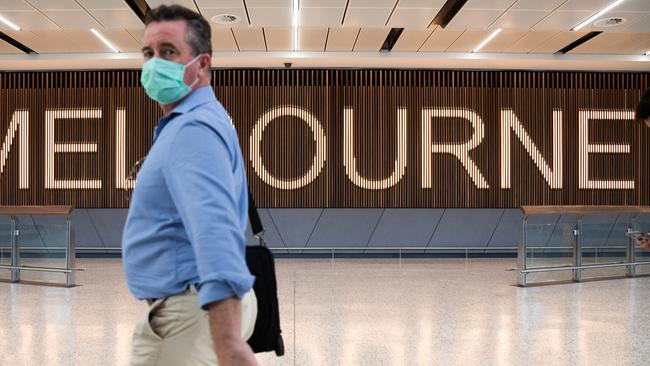
The state did report one new case in hotel quarantine overnight, adding to the 13 other cases reported within the scheme since the state reopened to international travel this month.
Three major COVID-19 vaccination centres will open this morning for frontline workers and anybody over 70.
Victorians who are eligible under phases 1A and 1B of the rollout will be able to receive the AstraZeneca vaccine.
They’re located at the Royal Exhibition Building, the Melbourne Convention and Exhibition Centre, and the former Ford factory in Geelong.
PFIZER DOSES NOT GUARANTEED
Australia’s health chief Brendan Murphy has conceded he can’t tell the vast majority of Australians when they’ll be vaccinated and that the supply of 20 million extra Pfizer doses is not guaranteed.
Professor Murphy told the Senate’s COVID committee that the international supply of Pfizer — which has become the preferred vaccine for people aged under 50 after AstraZeneca was linked to a rare blood clot disorder — is subject to ongoing reassessment.
“They’re doing their best as a company to increase their supply but the forward view they can give us of supply with certainty is limited,” he said on Tuesday.
“It’s going to be hard without a clear reliance on domestic supply to be absolutely certain about targets but we will share targets when we have them. I can’t give you an exact prediction at the moment.”
QUEENSLAND VACCINE ‘WOULD HAVE BEEN WORLD CLASS’
The University of Queensland’s aborted COVID-19 vaccine would have been among the best in the world, having generated an immune response in almost all patients, clinical trial results show.
Sixty seven of the 68 people who took part in the jab’s phase one safety study who received two doses of the jab produced a “neutralising immune response” to the coronavirus, British medical journal The Lancet reported today.
“It means the vaccine basically worked in everybody … to induce the type of immune response we were looking for,” one of the lead scientists in the UQ team, Trent Munro, told The Australian.
“So that is not only just to make antibodies, but to make antibodies that are effective in killing the virus.”
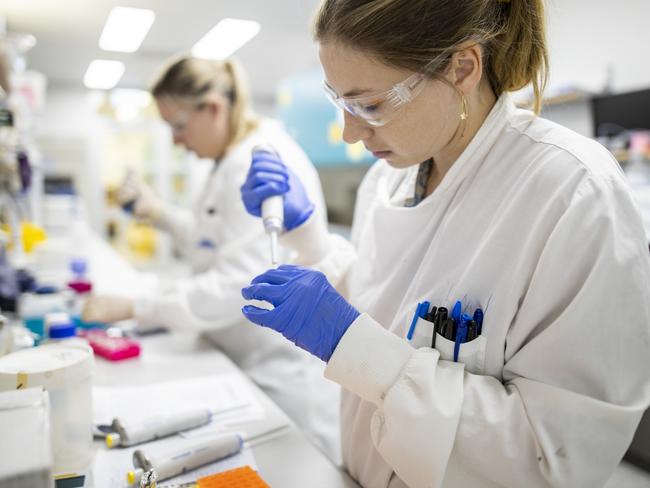
The phase one human trial was designed only to prove that the UQ jab was safe to give to people, but Professor Munro hailed the result as “fantastic, as good as we could have expected”.
Researchers abandoned the vaccine program last year after it was found to produce false-positive readings to HIV. This was due to the trial’s unique ‘clamp’ technology that fused two fragments of a protein found in HIV.
The Courier-Mail recently reported that the UQ team was now working behind the scenes to move the vaccine technology forward.
CONFUSION OVER ‘MISSING’ VACCINE DOSES
Australia has taken delivery of 4.3 million doses of COVID-19 vaccines but less than 1.6 million shots had actually been given.
The Australian reports that two out of three doses that have been supplied by Pfizer and AstraZeneca have not been administered, leaving questions over the missing 2.7 million doses.
The Morrison Government said there had been an “estimated dose utilisation rate of 75 per cent”.
861,613 available doses have not been administered, according to Health Department figures released to The Australian.
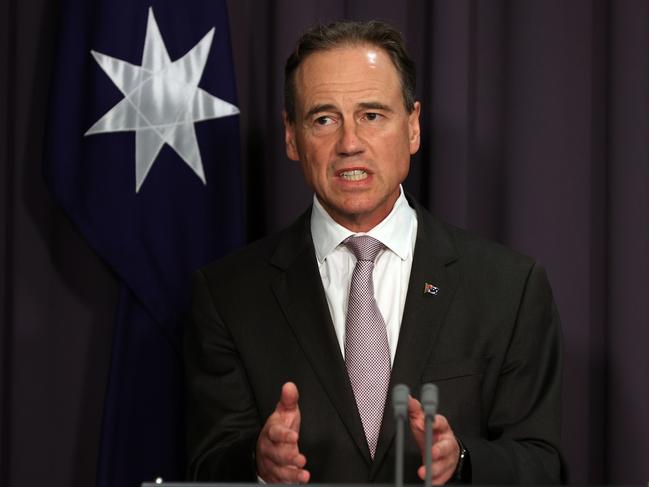
A spokesman for Health Minister Greg Hunt blamed the discrepancy on “contingency for second doses and the delivery schedule”.
“So far the Therapeutic Goods Administration has cleared every batch on the day it has received the data,” Mr Hunt’s spokesman said in a statement to The Australian.
“We are always delivering future supplies ahead of the coming week,” he said.
Meantime, America’s top infectious disease expert Anthony Fauci defended Australia’s handling of its vaccine rollout.
“I wouldn’t be that hard on Australia if this is the beginning of your program because you always expect some stumbles early on,” Dr Fauci said.
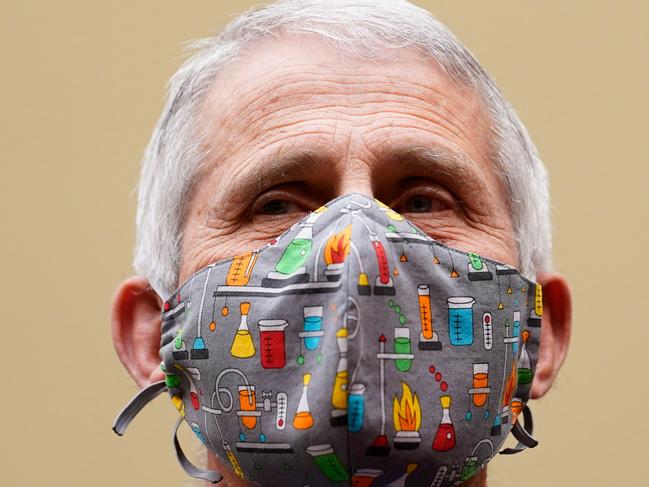
‘WE CAN DO BOTH’
Scott Morrison is pushing to give early access to COVID-19 jabs to all Australians aged over 50 in an effort to speed up the vaccine rollout.
In a statement released on Monday night, the PM’s office said the national cabinet meeting had agreed to consider bringing forward the vaccination of those over the age of 50.
The national cabinet has also backed the use of mass vaccination sites — which are already up and running in Victoria — to ramp up the rollout.
“National cabinet reinforced that general practice will continue to be the primary model of rolling out vaccinations for Australians over 50 years of age, with states and territories to consider options to supplement rollout through expanded state vaccination centres,” the statement said.
“The commonwealth will continue to finalise the vaccination of residential aged care facility residents with Pfizer using an in-reach model.”
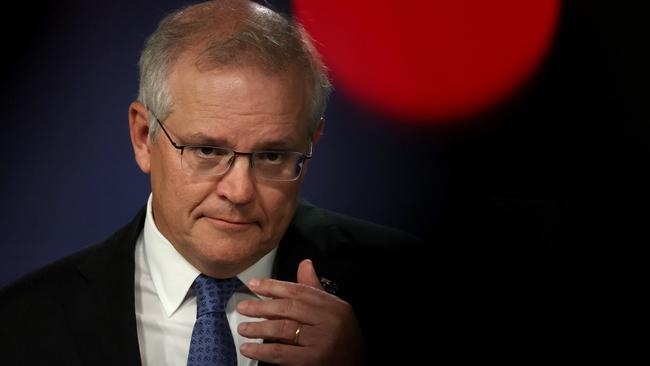
Earlier, Mr Morrison rejected suggestions bringing forward the rollout would mean the focus will be taken off the most important vulnerable group of people.
“What’s becoming clear is that we can actually do both,” he said.
“There’ll be no lessening of effort on focusing on that most important vulnerable group.
“(We) don’t want to see one vaccine that’s rolling off the line and going through the approval processes and batch testing, sitting in a fridge.
“If there is someone over 50 and is there and wants to take that vaccine, we’ll look at how that can be achieved today and in what kind of time frame we can commence that process.”
It comes after Health Minister Greg Hunt on Sunday confirmed pharmacists could fast-tracked into Australia’s faltering coronavirus vaccine program under a “very compelling” plan being considered by the federal government.
The “fast start pharmacy proposal”, put forward by the Pharmacy Guild of Australia, would involve activating community pharmacies in regional, rural and remote areas with no access or access to just one GP.
AUSSIE INTEREST IN PRODUCING mRNA VACCINE
Australia is interested in producing a cutting-edge form of COVID-19 vaccine onshore, but the Health Minister warns it could take the “best part of a year” for manufacturing to begin.
Greg Hunt says the federal government has a “very high interest” in producing mRNA vaccines, potentially including the Pfizer and Moderna jabs, in Australia as it looks to rescue its error-ridden rollout.
It had planned for the AstraZeneca vaccine to make up the bulk of its rollout, with drug manufacturer CSL to produce 50 million doses in Melbourne.
But that plan was thrown into disarray earlier this month when authorities warned against its use in people aged under 50 when possible, making the Pfizer vaccine Australia’s preferred jab for 11.2 million recipients.
Health Minister Greg Hunt confirmed on Sunday the government saw onshore mRNA production as the “next phase”, but warned the process would take time.
“We know we can do this as a country. I won’t put an exact time frame (on it), but the companies we’ve been speaking to have said that they would expect it would take the best part of a year,” he said.
“Some may be able to do earlier, some may take longer because of the commercial disclosure requirements … We’re talking widely, and there is very high interest in mRNA capability in Australia.”
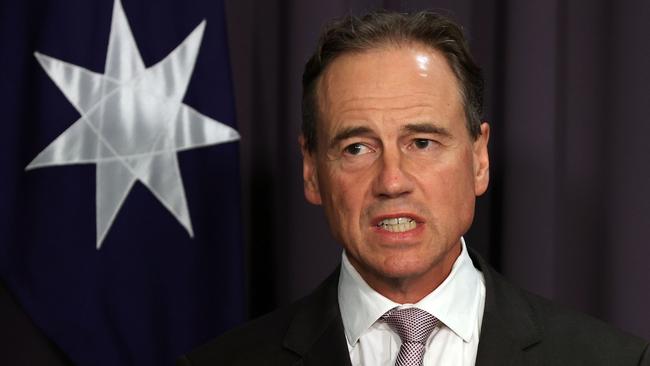
Australia has ordered a total of 40 million Pfizer doses to arrive by the end of the year, but a total reliance on shipments from overseas has seen its plans dented by supply issues in the European Union.
The AstraZeneca developments saw the federal government abandon all vaccination timetables, having aimed to vaccinate the entire adult population by October.
But Labor health spokesman Mark Butler said Prime Minister Scott Morrison must outline a “clear plan” after talks with state and territory leaders at a national cabinet meeting on Monday.
“He can’t simply now walk away from a plan,” he said on Sunday.
“Scott Morrison must outline a clear plan to replace his current failed one that has targets, that has timelines, that has milestones that allow Australians and Australian businesses to plan for the future.”
Mr Butler accused the prime minister of “bungling” the rollout, saying the government was over-reliant on the AstraZeneca vaccine and doses sourced from overseas.
“We’re only getting a very small amount of supplies from Pfizer and still not enough from AstraZeneca because Scott Morrison did not negotiate deals quickly enough, and he did not negotiate enough deals,” he said.
GP’S REPORT DROP IN APPOINTMENTS FOR VACCINE
Aussies are abandoning their appointments to get a COVID-19 vaccine following concerns about AstraZeneca’s link to rare blood clots.
Three cases of thrombosis with a low platelet count have been reported in Australia, with one 48-year-old woman dying in a NSW hospital last week.
Sydney GP Jamal Rifi said confidence had taken a hit following the reports, prompting the number of vaccine bookings at his clinic to dramatically drop.
He said the clinic had been vaccinating up to 70 people a day until the medical advice was updated this month to no longer recommend AstraZeneca for people aged under 50.
“Unfortunately, today, I have only 17 booked,” Dr Rifi told Today.
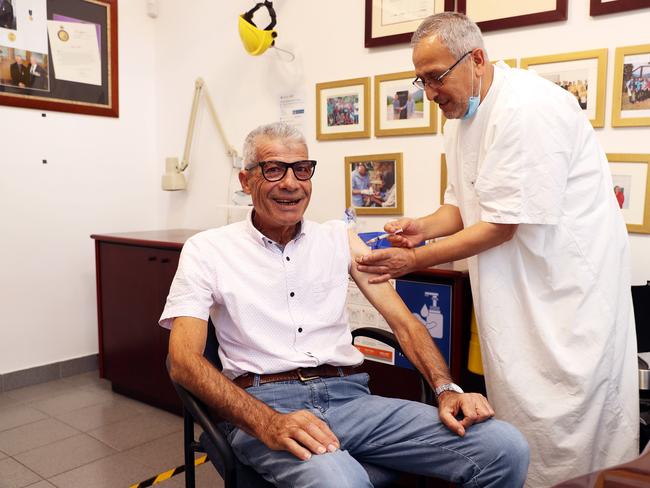
“That is what is causing the alarm for myself and other GPs.
“I think it’s the side effects and the reported cases of the clots that happened in Australia.”
Almost 1.5 million vaccines have been administered as of April 17.
Dr Rifi said GPs were talking with patients about the rare side effects and what to look for but urged people aged over 70 to get the jab.
“We would like to send the message loud and clear that people have nothing to fear from this vaccine,” he said.
“They need to fear the virus itself. It (the vaccine) is safe, it is effective.”
ANKLE BRACELET FOR RETURNED TRAVELLERS
Planning for easing Australia’s international border restrictions is underway, but the shutters will not be lifted all in one go, Prime Minister Scott Morrison said.
The news came as a senior minister suggested ankle bracelets could be used by returned travellers to ensure they observe the rules around home-based quarantine.
Mr Morrison doubled down on the possibility of the nation’s border restrictions easing in the second half of this year, a move that may give Australians the ability to quarantine at home after travelling abroad.
“We are doing the planning work, understanding health risks, understanding how they can be successfully done and in a few months, what we see where we are at,” Mr Morrison told reporters.
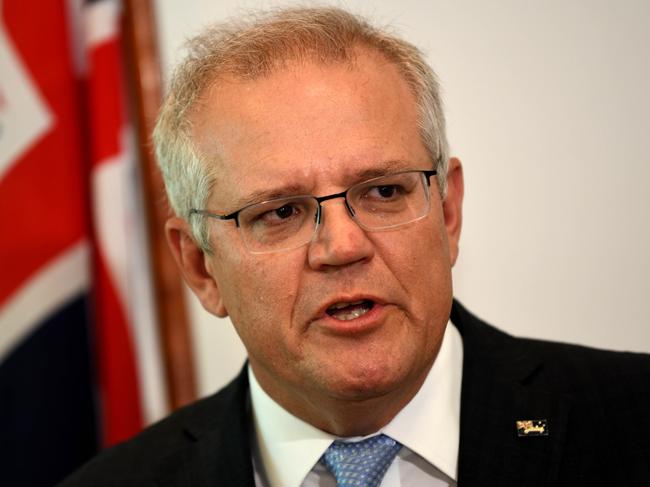
However, any such easing would not automatically allow freedom of movement for all Australians.
Mr Morrison instead flagged a staggered opening that would allow Australians who have received a COVID-19 vaccination to travel overseas for “important purposes”, such as work and medical reasons.
“If we can get in a position in the second half of the year to have Australians for essential purpose travel and return to the country without going into hotel quarantine, if they have been vaccinated, it is a good incentive to get vaccinated,” he said.
He added he was in “no hurry” to lift the international border restrictions.
“I assure Australians that I will not be putting at risk the way we are living in this country which is so different to the rest of the world,” he said.
Mr Morrison did not elaborate on how the finer points of home-based quarantining, however Employment Minister Stuart Robert was asked about this by ABC Insiders host David Speers
“What sort of ideas would there be for this? Regular visits, inspections to make sure they’re home, ankle bracelets, some sort of monitoring, how do you do it?” Mr Speers asked.
Mr Robert wouldn’t rule anything out and said allowing fully-vaccinated Australians to travel overseas would be a logical first step in reopening international borders.
HUNT ANNOUNCES INVESTIGATION INTO WOMAN’S VACCINE DEATH
A coronial investigation into the death of a 48-year-old woman believed to be linked to the AstraZeneca vaccine is now underway.
Health Minister Greg Hunt announced the investigation on Saturday, just 24 hours after the Central Coast woman, Genene Norris, died from blood clotting, which is one of the side effects of the COVID-19 vaccine.
Ms Norris received the vaccine days before Prime Minister Scott Morrison announced the government would not roll out the vaccine to under-50s within Australia.
Despite the death, Mr Hunt said the nation’s rollout plan would not be effected, saying the Australian Technical Advisory Group on Immunisation (ATAGI) would review the vaccine, while the government continues to follow the Therapeutic Goods Administration’s (TGA) advice.
“Throughout the course of the pandemic we have followed the medical advice and we will continue to do that,” Mr Hunt said.
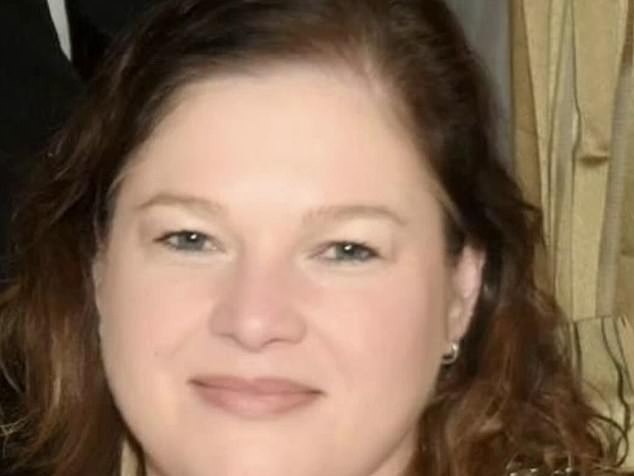
“Sometimes difficult and hard decisions are made but we will continue to follow that medical advice because, ultimately, that is the greatest protection for Australians.
According to the TGA’s Deputy Secretary Professor John Skerrit, Ms Norris had a number of pre-existing medical conditions, which made her case “atypical” and “particularly complicated”.
Prof Skerrit said an autopsy will be conducted early next week.
– with Madura McCormack, Finn McHugh, David Aidone
More Coverage
Originally published as COVID updates: Scott Morrison announces reduction in flights from high-risk countries




